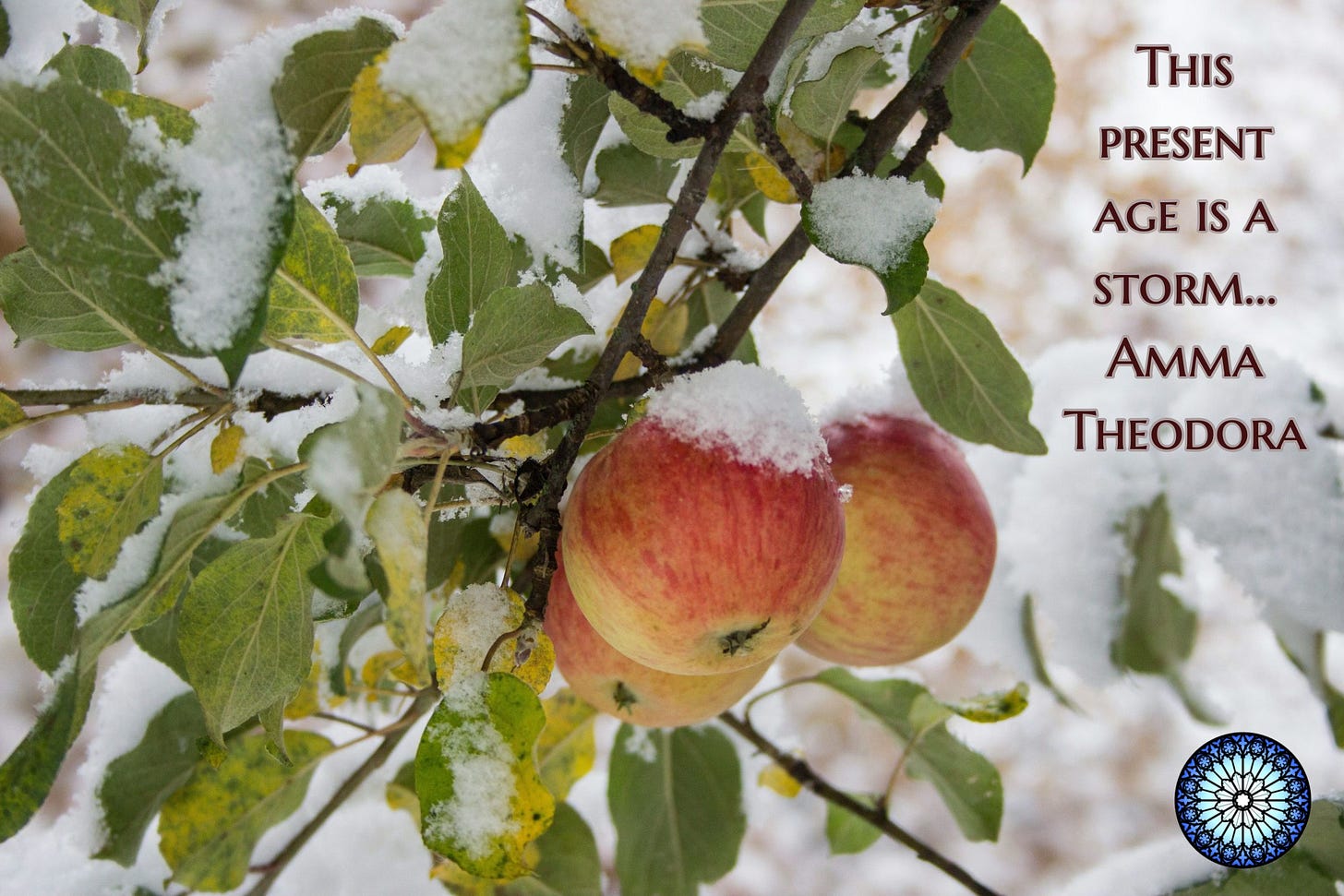Weathering the Storm
We bear fruit when we trust even in the darkest of times.
“Let us strive to enter by the narrow gate. Just as the trees, if they have not stood before the winter’s storms, cannot bear fruit, so it is with us. This present age is a storm, and it is only through many trials and temptations that we can obtain an inheritance in the kingdom of heaven.” — Amma Theodora
Amma Theodora may have lived in the desert, but …




